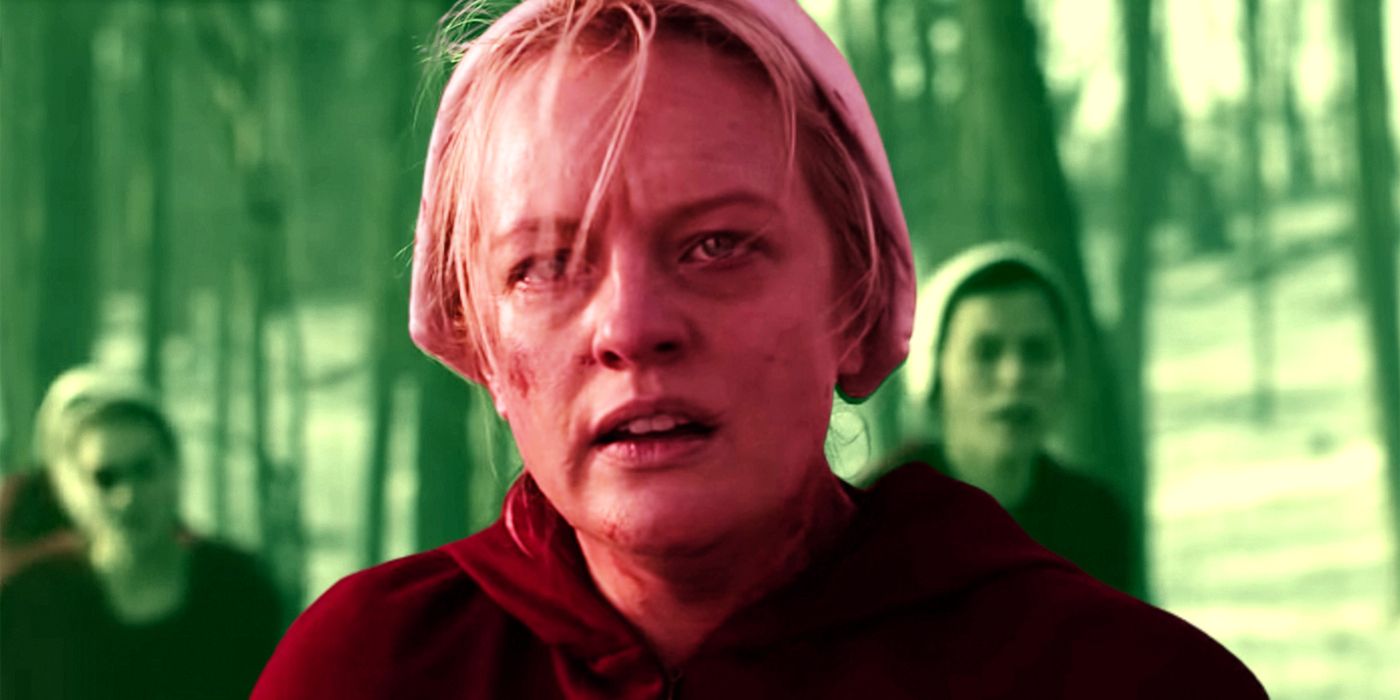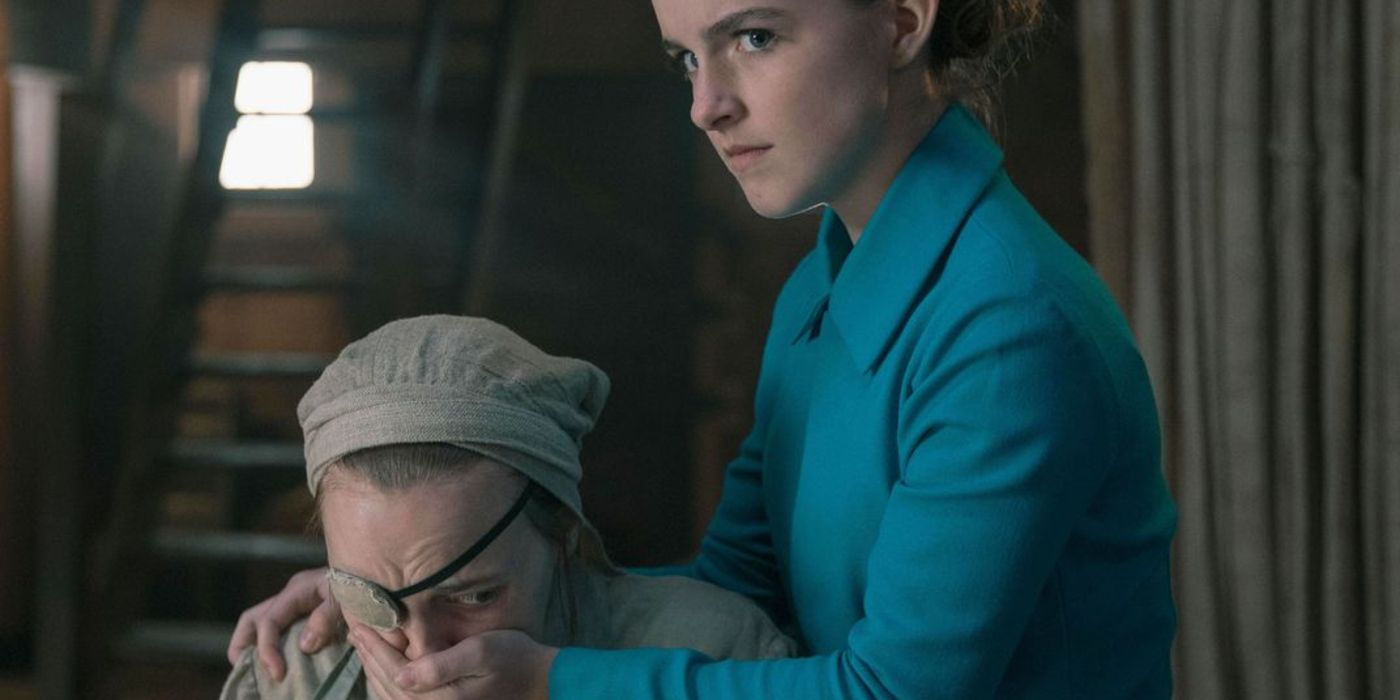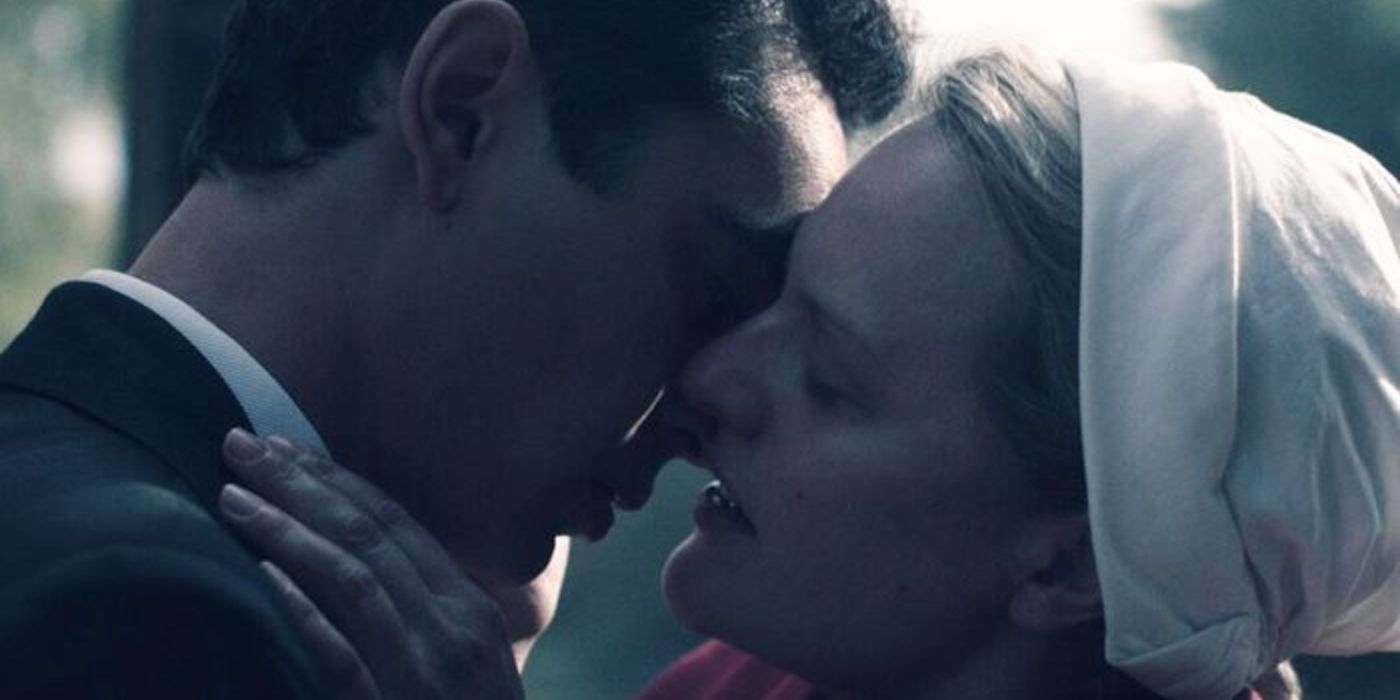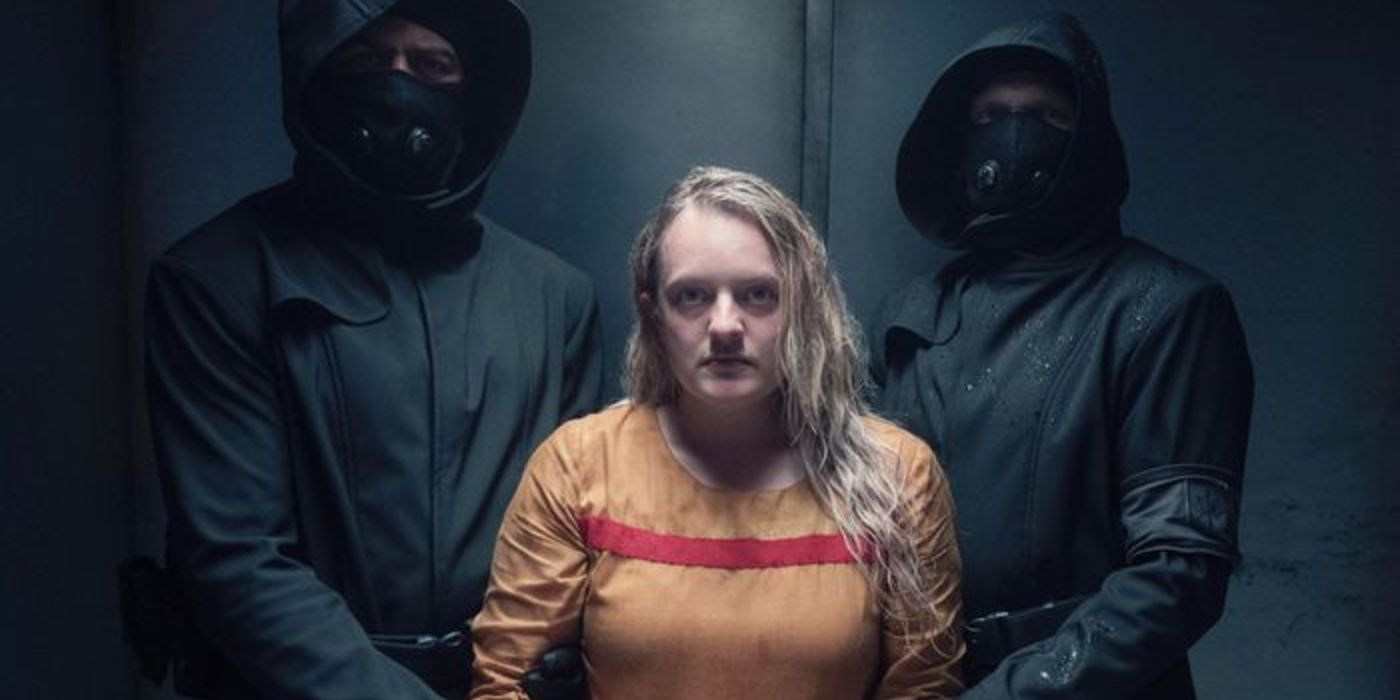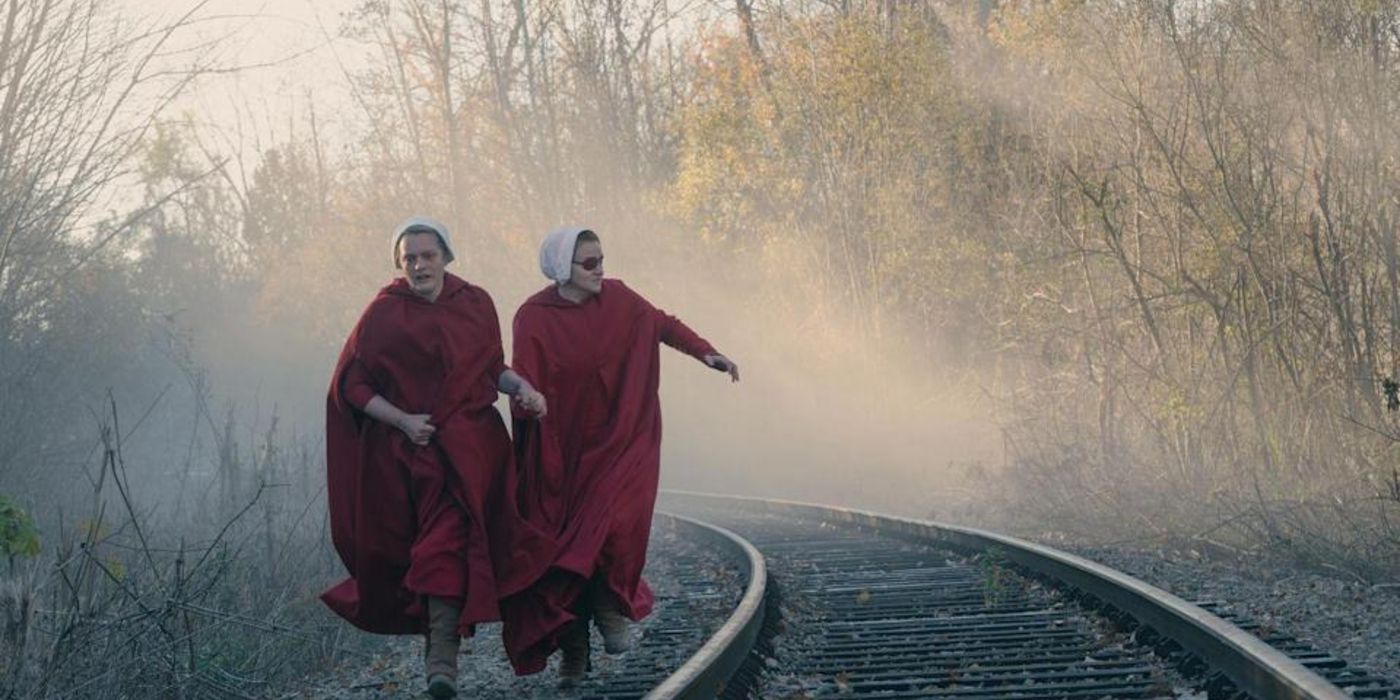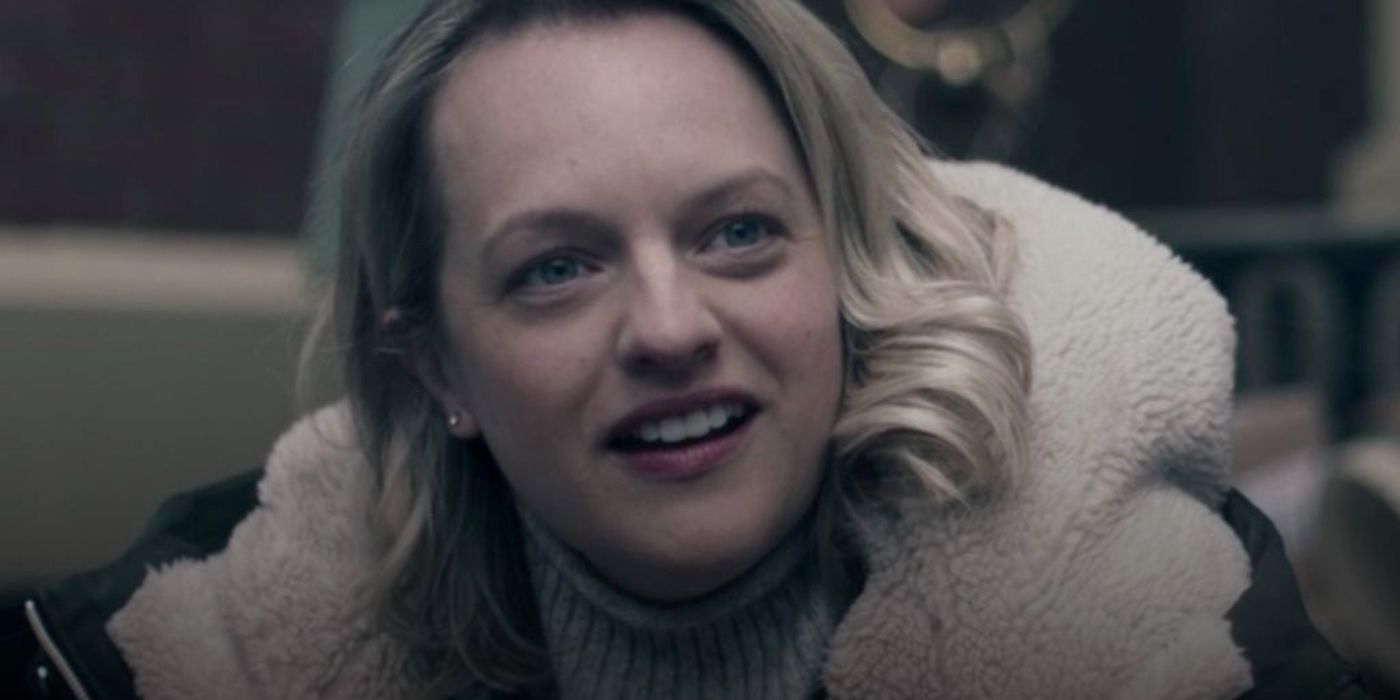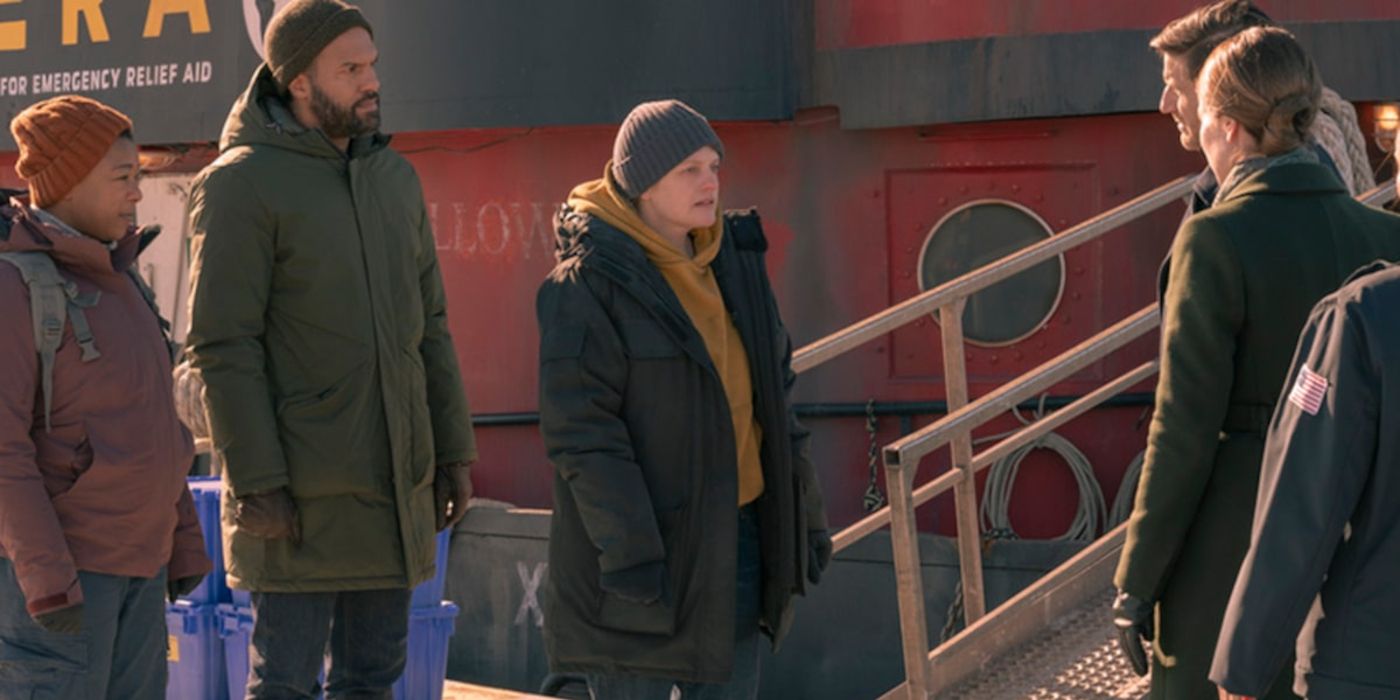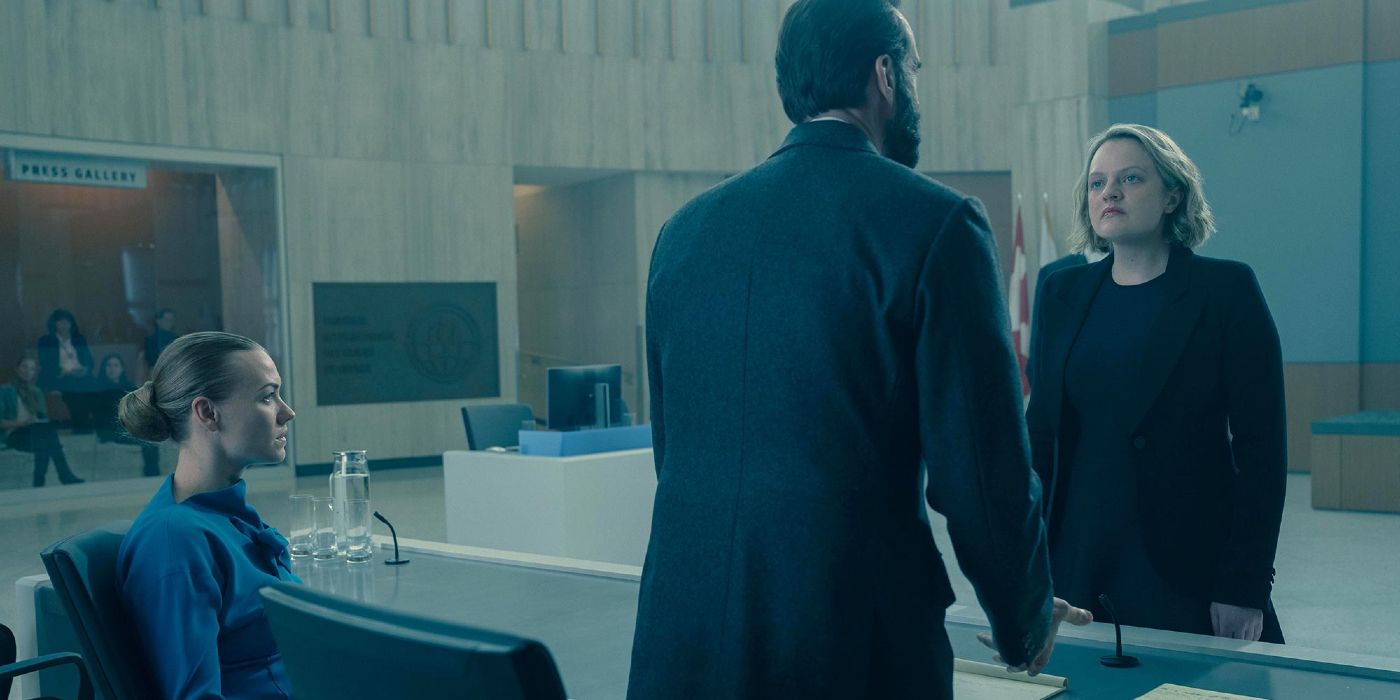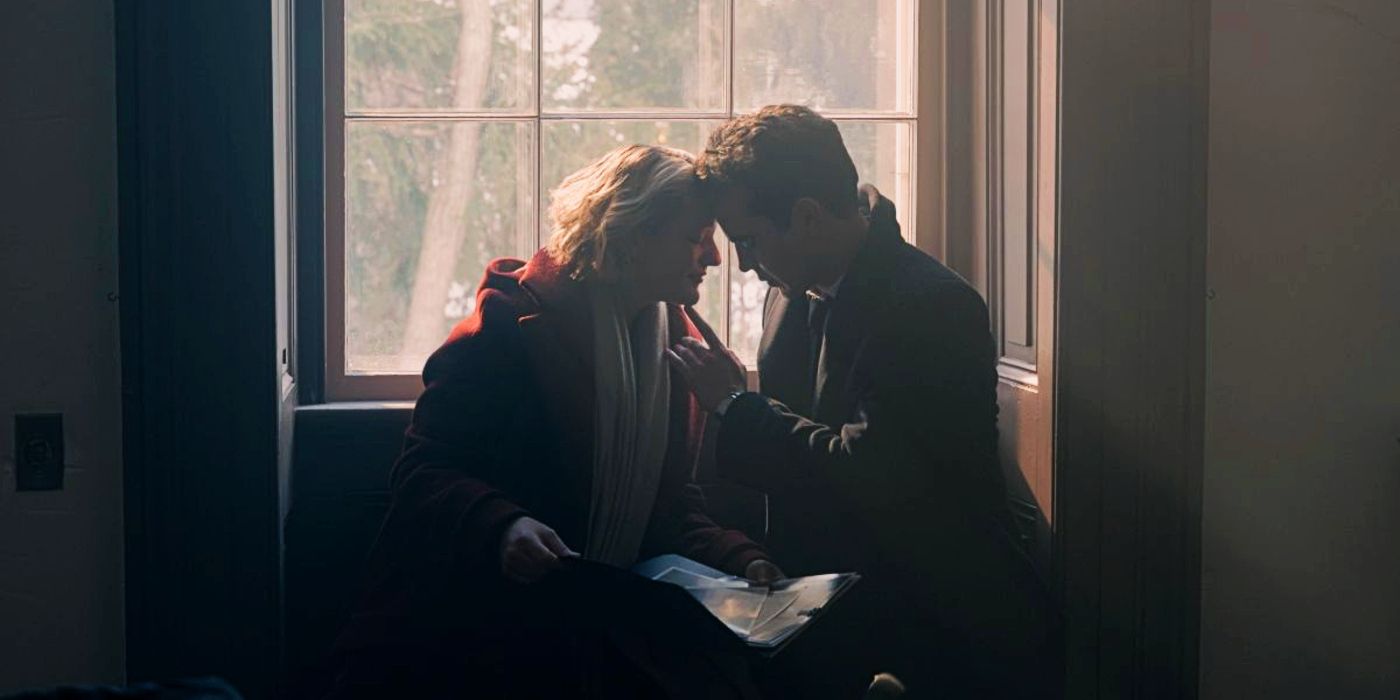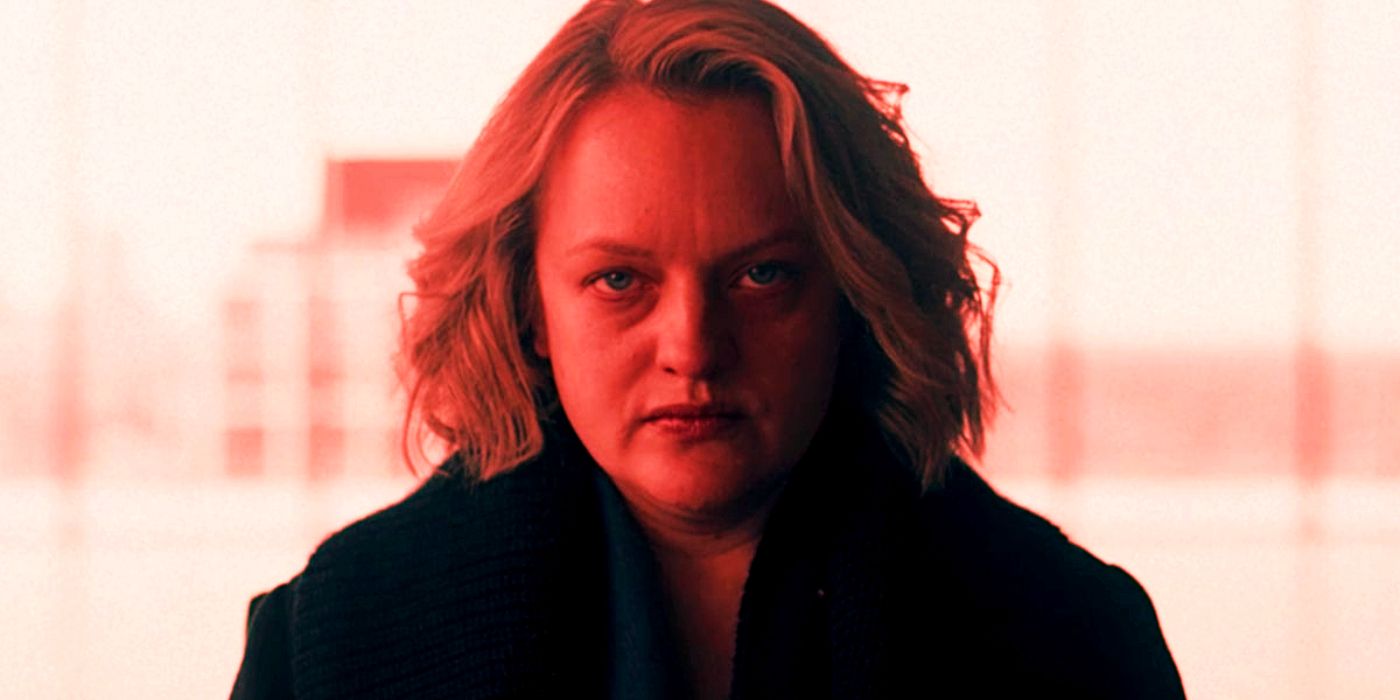Warning: Contains SPOILERS for The Handmaid's Tale season 4, episodes 1-7.
Here's every song on the soundtrack for The Handmaid's Tale season 4. Following a lengthy hiatus after season 3 ended in August 2019, The Handmaid's Tale returned to Hulu for season 4 in April 2021. The new run of 10 episodes charts June Osborne's mission to take down Gilead from the inside and then, eventually, her efforts from Canada after she finally makes her escape.
While based on a book from 1985, The Handmaid's Tale has always been a show that reflects the world around it. Much has changed in that sense since the show last aired, with Joe Biden replacing Donald Trump as the US President, but there's still a lot of work to be done. For June et al, though, not much has changed at all; The Handmaid's Tale season 4 picks up right where season 3 left off, with June clinging on to life after being shot, following her helping the Marthas and over 80 children escape from Gilead. The ramifications from that decision, and what June does next, dominate the overarching narrative of the show.
As ever, June's plight and that of those around her is accompanied by an eclectic mix of songs. The Handmaid's Tale's use of music has proved notable several times before, ranging from Kate Bush to Bruce Springsteen, using their numbers to complement - or often starkly juxtapose - whatever (usually horrific) events are happening on-screen. The Handmaid's Tale season 4's soundtrack is no different.
Episode 1 - "Pigs"
"I Say A Little Prayer" - Aretha Franklin: The Handmaid's Tale season 4 begins with the survival of June Osborne. Having been shot at the end of season 3, the fellow handmaids work to stitch her back together and quickly fix her wounds as best as possible, despite the odds - making Aretha Franklin's "I Say A Little Prayer" a fitting number. It also follows on from the religious theme of June's season 3 ending, where she quoted Exodus from the Bible.
"Ripple" - Grateful Dead: The next song in The Handmaid's Tale season 4 is Grateful Dead's "Ripple," which plays at the Keyes household when June returns to find the other Handmaids letting their hair down and having fun. The song continues the religious themes of the show, with lyrics such as "Reach out your hand if your cup be empty," often compared to passages from the Bible.
"A Natural Woman (You Make Me Feel)" - Carole King: Another song commonly associated with Aretha Franklin, The Handmaid's Tale season 4 uses Carole King's version of the number (the original itself was co-written by King). The song plays at the end of episode 1, when Mrs. Keyes gets into bed with June following the murder of the guardian. Given their discussion earlier in the episode about Esther's experiences, and June's seemingly mother-like feelings towards her, then it's another obvious song choice, allowing them to briefly feel something more natural than what Gilead ever allows.
Episode 2 - "Nightshade"
"Sara Culture" - Addie Pearl Rice: The Handmaid's Tale season 4, episode 2 doesn't have as many songs, with just one coming towards the end, and even then it's in the background. As June plots to take down the commanders, Addie Pearl Rice's "Sara Culture" can be heard drifting in and out from the other room.
Episode 3 - The Crossing
"Heaven Is A Place On Earth": While "Heaven Is A Place On Earth" was originally performed by Belinda Carlisle, The Handmaid's Tale season 4's use of the song instead comes from Elisabeth Moss. Having been once again captured and tortured by Gilead, June is locked in a small box as punishment, and begins to sing "Heaven Is A Place on Earth" to herself. There's a sense of both irony and tragedy to this, but it also calls back to The Handmaid's Tale season 3, episode 9, when Carlisle's recording of the song played as June was in the hospital with Natalie, aka Ofmatthew.
"Nocturne Op. 9, No. 2" - Frédéric Chopin: Following her being locked up, June is given the chance to eat with Commander Lawrence, who hopes he can wine and dine the information Gilead needs out of her. The scene is accompanied by Chopin's "Nocturne Op. 9, No. 2," arguably the composer's most iconic and well-known piece of music.
"Street Spirit (Fade Out)" - Radiohead: The Handmaid's Tale season 4, episode 3 comes to a close with Radiohead's "Street Spirit (Fade Out)," which plays as June attacks Aunt Lydia in the van and the Handmaids make their latest getaway attempt. The song continues through the slow-motion run, culminating in the deaths of several Handmaids while June and Janine escape. The song speaks to being caught inside a machine, of death, and of love - while Radiohead's version is about capitalism, it isn't hard to apply it to June's fate in Gilead.
Episode 4 - "Milk"
"Let Me Take You Out" - Class Actress: The song plays on the stereo in flashbacks, as Janine prepares to visit what she thinks is an abortion clinic. The lyrics include lines such as "I know you feel all alone," which speak to Janine's frame of mind at the time.
"Three Little Birds" - Janine sings the Bob Marley song - known for its lyrics "Don't worry about a thing" and "Every little thing is gonna be alright" - to her son, Caleb, in a flashback scene. The song is designed to be reassuring, even though viewers know every little thing wasn't alright (indeed, nothing was in the end). It's not the first time Janine has sung to one of her children on The Handmaid's Tale, previously singing Dusty Springfield's "I Only Want To Be With You" to Angela.
Episode 5 - "Chicago"
"Time Didn't Change A Thing" - The DeMarco Sisters: The DeMarco Sisters' song plays in The Handmaid's Tale season 4, episode 5 as Aunt Lydia exercises, and is talked to about her devotion to Gilead (and apparent issues with it). It highlights how devout Lydia remains, even after all this time (and punishment), and that Gilead itself remains inflexible.
"Nightingale of Paradise" - Baha'i Victory Chorus: The song plays when Commander Lawrence meets with Aunt Lydia, with the pair going toe-to-toe in order to gain and provide information on Gilead they can leverage. The song, in part, refers to a message being brought, and shows the "beauty" in what each gives the other, with perhaps a slight bit of irony.
"Fix You" - Fearless Soul: Originally performed by Coldplay, Fearless Soul's version of "Fix You" closes out The Handmaid's Tale season 4, episode 5, as June searches for Chicago - the lyrics, of trying but not succeeding and needing to "fix" someone, clearly apply to June and Janine's current situation, but also to June and Gilead as a whole.
Episode 6 - "Vows"
"Verse 18" - Emi P the Stumbler: "Verse 18" plays during the flashback scenes in The Handmaid's Tale season 4, episode 6, "Vows." The song accompanies June and Moira making and drinking mimosas, and has appropriately chilled out vibes. However, it also references the book of Luke from the Bible, specifically Chapter 15, Verse 18, which asks the father for forgiveness for his sins. Given the name link, this foretells June's own request for forgiveness from Luke at the end of the episode.
Episode 7 - "Home"
"At Last" - Etta James: Etta James' iconic "At Last" (originally performed by Glenn Miller) opens up The Handmaid's Tale season 4, episode 7, "Home," beginning when June meets with the authorities and then continuing as she shops in the grocery store. The meaning is pretty overt, but it works on a couple of levels. In-universe, it signifies that June has finally made it to Canada and found a sense of freedom, reunited for her loved ones. For viewers, it's that same sense of payoff; at last, June is where she belongs.
Episode 8 - "Testimony"
"Glory Box" - Portishead: The song plays in the opening scene of The Handmaid's Tale season 4, episode 8, "Testimony," as June cuts her hair, preparing to give evidence to the International Criminal Court. The song is about a woman who wants to be loved and to "be a woman," which connects to June's journey in a couple of ways. It speaks to how Gilead treats women, seeing them as something lesser, but also to her attempts to reconnect sexually with Luke.
"Hell Is Round The Corner" - Tricky: Closing out the episode is "Hell Is Round The Corner," which means the songs in "Testimony" cleverly bookend things by being linked themselves. Both songs were released in 1995, and both sample "Ike's Rap II" by Issac Hayes. The song was inspired by Tricky's experiences of drugs, but also speaks to issues with society, and lyrics such as "If you believe and (or) deceive common sense says shouldn't receive / Let me take you down the corridors of my life / And when you walk, do you walk to your preference? / No need to answer till I take further evidence" and "Until then, you have to live with yourself," feel fitting for June's story in this episode.
Episode 9 - "Progress"
"On The Nature of Daylight" - Max Richter: Richter's 2004 composition serves as the perfect accompaniment as June drives away from Nick in The Handmaid's Tale season 4, episode 9, "Progress." The theme is a beautiful one that pairs well to the sense of aching, longing, and loss that the duo's love story - and parting - brings. The song has been used in multiple movies and shows over the past few years, most notably Arrival, but it also has a big connection to The Handmaid's Tale: Elisabeth Moss starred in the music video for the song back in 2018.
Episode 10 - "The Wilderness"
"You Don't Own Me" - Lesley Gore: The Handmaid's Tale season 4 finale goes out with a bang, as June and other Handmaids kill Fred Waterford. The moment, in which they chase down and then murder Fred, is backed-up by Lesley Gore's "You Don't Own Me," a song which feels particularly fitting for the moment. The scene is not just about June killing Fred, but showing that the Commanders no longer have possession of the former-Handmaids, who are now free women, not owned by Gilead or anyone else. The song was previously used in The Handmaid's Tale season 1, with Offred confirming her name as June; it was a moment of defiance then as she attempted to claw back her identity, and it's a moment of greater empowerment as she takes back her life here.

